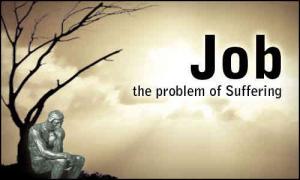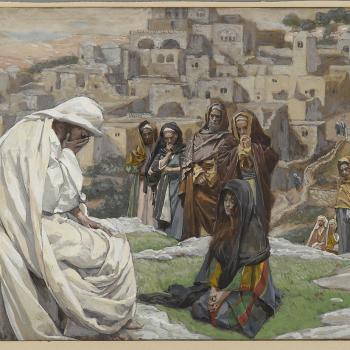 “I never explain anything,” Mary Poppins says when asked why there are chimney sweeps in Mr. Banks’ clean home. For the problem of suffering the Book of Job tries out some explanations for the existence of suffering. In the end God goes with Mary Poppins, and we’re better for it. Episode 15-1 of the Rowing with Michael Series: A journey through the Jewish/Christian Scriptures in Verse and Commentary. Introduction and Contents for this series HERE.
“I never explain anything,” Mary Poppins says when asked why there are chimney sweeps in Mr. Banks’ clean home. For the problem of suffering the Book of Job tries out some explanations for the existence of suffering. In the end God goes with Mary Poppins, and we’re better for it. Episode 15-1 of the Rowing with Michael Series: A journey through the Jewish/Christian Scriptures in Verse and Commentary. Introduction and Contents for this series HERE.
Michael, row the boat ashore. Alleluia….
Job had money and life was good. Alleluia.
Surely he was living the way he should. Alleluia.
He lost it all and they said he’d sinned. Alleluia.
But the answer is blowin’ in the wind. Alleluia.
You can easily identify the story of Job as fiction even though the experiences of Job are realistic enough.. It begins with a setting that is not on earth but in heaven. God is presiding over a court that looks like Camelot and bragging to “Satan,” one of his “knights.” God is very pleased with his friend Job’s devotion. Satan says, “Of course he gives you his total devotion. You gave him practically everything a man could want. Just take away those gifts and see how faithful he is then.” God says, “OK, he’s in your hands. But don’t kill him.”
The Book of Job is a philosophical reflection on suffering. Christians, and Jews before them and who knows who before that, have analyzed and agonized over the paradox of suffering in a world made by a good god. (It’s not an invention of recent atheist critics.) There are those who find in this problem of evil a reason to leave the faith they were brought up in. Many others, just as sensitive and reasonable, stay. Trust that sometimes must go beyond reason, even in human affairs, steadies them.They know this problem has been around a long time and that some answers have worked for some thoughtful people. They may have their own answers.
The traditional answer
The Israelites had a traditional answer to the problem of suffering. Suffering was divine punishment for the sins of the nation. Very often the sin named was idolatry, and in the Bible idolatry is closely related to injustice. The prophets accused the Israelites of whoring after other gods. In the same breath, though, they targeted sins against other people and the earth: “You have neglected the poor, the widow, and the stranger. You have ignored the Sabbath rest for yourselves, your slaves, your beasts of burden, your fields.” Worshiping Israel’s God implies that you take care of these other duties as well.
The prophets also held out hope. “God will not be angry forever. Return to God’s ways and he will relent. You will again live in a land of milk and honey.” The following pattern is repeated many times in the story the Bible tells:
- Sin
- Punishment (usually in the form of defeat by some other nation)
- Repentance
- Restoration of the nation’s fortunes
- Sin again, and so on..
The explanation: suffering is punishment for sin. The hope: repent, reform and God will restore the nation. This answer worked as long as Israel was a nation, well, two nations. After Solomon the United Kingdom split into Northern and Southern halves. It worked because people identified themselves with their nation, tied their destiny and their dreams to that of the nation. So even if their personal lives didn’t work out so well, there was hope that the nation’s would, someday. It was a common attitude in that age but probably impossible today.
Disaster for Israel and the traditional answer
There came a time when the traditional answer stopped working for Israel. Israel had ceased to be any nation at all.
That was during the Babylonian Captivity, the middle 40 years of the sixth century BCE. The larger half of the Divided Kingdom had been destroyed long since by the Assyrians. The Babylonians defeated the smaller, named Judah after one of its two tribes. They removed many of the people to Babylon. The prophet Jeremiah tells the people to make a new life. “We no longer have our own land or king. Our temple is destroyed. But this place isn’t exactly a prison. We can even pray for this new land. And we have our sacred writings.” (Jeremiah 29:5-7) Some people think the style of worship that became the Jewish synagogue service, centering around readings and commentary on the scriptures, began at this time. About this time also the Israelites came to be known as Jews.
Then King Cyrus of Persia, having just conquered the Babylonians, decided it was inconvenient to have all these displaced people around his new empire. (There were more of them than just the Jews.) He gave permission for all of them to go back to their original homes. Some Jews accepted the offer. Their story is told in books of Ezra and Nehemiah. Many more wanted to stay where they were. They’d made a decent life for themselves in a foreign land. It was among these latter people that the story of Job appeared. The history of the telling of that story actually involves two stories. The two versions of the story show us two turning points in the history of the problem of suffering.
The story of Job, first edition
As the story was first told, Job is a righteous man of means and also blessed with good health and a happy family. Then he loses it all, his wealth, his health, and even his family. Through it all Job suffers with heroic patience, and he gets his reward, with wealth, health, and new family restored. Job’s patience has since become a byword. I seem to recall my poor, exasperated mother saying something about “trying the patience of Job.”
That story indicates that the understanding of suffering among the Jewish people was beginning to change. It no longer looked forward to what might happen to the nation in some unknown future. God doesn’t visit the sins of the fathers on the children to the third and fourth generation; nor does God’s mercy, when the people repent, consist in some future blessing for the nation. Since there is no nation it’s necessary for justice to be served one individual at a time. I think this is the understanding of suffering most Christians have today, adding that the recompense may have to wait until a life after death.
A big problem for the Jews: At this time they didn’t believe in life after death. A poetic genius among the Jews gave a new twist to the story of Job and a new take on the problem of suffering, as we’ll see in the next post about a not-so-patient Job.











